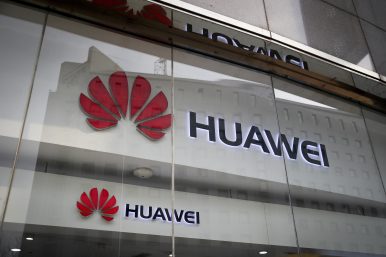By Ankit Panda
 The Trump administration has served up a side-helping of serious economic decoupling alongside this month’s main course: the escalating trade war. On Wednesday, the administration announced that it would blacklist China’s Huawei Technologies Co. by blocking American firms from serving as suppliers for Huawei products. A long-rumored executive order signed by U.S. President Donald J. Trump was followed by a U.S. Commerce Department listing of Huawei and 70 affiliates to an “Entity List,” barring the company from sourcing U.S. components for its products and services.
The Trump administration has served up a side-helping of serious economic decoupling alongside this month’s main course: the escalating trade war. On Wednesday, the administration announced that it would blacklist China’s Huawei Technologies Co. by blocking American firms from serving as suppliers for Huawei products. A long-rumored executive order signed by U.S. President Donald J. Trump was followed by a U.S. Commerce Department listing of Huawei and 70 affiliates to an “Entity List,” barring the company from sourcing U.S. components for its products and services.
Given the assumptions that had underlaid globalization and U.S.-China interdependence in the technology sector, the move will hit Huawei, China’s largest technology company and a source of national pride, where it’ll hurt.
One prominent example of the effect is Google Inc.’s Android operating system, which comes preinstalled on Huawei’s leading smartphones. Under the new regime, Google would require specific U.S. government approval to license Android to Huawei. The same would go for semiconductors and other components, including systems-on-chip Huawei sources from U.S. firms like Qualcomm.
In the worst case scenario, this week’s actions would hurt Huawei tremendously in the short term and all-but-guarantee it and other major Chinese firms voluntarily decouple themselves away from reliance of U.S.-sourced components to reduce vulnerability. Longer term, the outcome of this decoupling would comport with the Chinese leadership’s stated priorities in the form of initiatives like “Made in China 2025,” whose objectives include greater consolidation of all ends of the high-technology supply chain within Chinese borders.
U.S. concerns over Huawei, in the meantime, are diverse and not groundless. The firm’s suspected theft of U.S. intellectual property and ambiguous relationship to the Chinese Communist Party have come under intense scrutiny. (Officially, Huawei claims it’s an employee-owned company, but that has come under question recently.) Meanwhile, the United States continues to seek the extradition of Huawei Chief Financial Officer Meng Wanzhou, who was arrested last December in Canada for allegedly knowingly authorizing sanctions-violating activities.
For now, it’s not assured that the worst case scenario for Huawei will come to pass immediately. The way the Trump administration has chosen to go about designating Huawei and implementing the latest executive order, it could simply choose to hold the firm’s success under threat in the short term, promoting good behavior. The administration could continue granting approvals to U.S. suppliers to do business with Huawei, using that as leverage to encourage the company — and the Chinese government — to acquiesce to U.S. interests.
That approach might quickly falter. For one, there would be little use for anyone in China — certainly at the highest levels of Huawei — to pretend that this decoupling will see an immediate reversal. Second, the Chinese government already is deeply unhappy with what it sees as concerted economic warfare by the Trump administration. Using Huawei’s vulnerability to American suppliers as another weapon would only worsen matters.
The Chinese Ministry of Foreign Affairs has already reacted sharply to this week’s moves. “We oppose the act of any country to impose unilateral sanctions on Chinese entities based on its domestic laws, and to abuse export control measures while making ‘national security’ a catch-all phrase,” spokesperson Lu Kang said at a regular briefing on Thursday. “We urge the US to stop its wrong practices, create conditions for Chinese and American companies to carry out normal trade and cooperation, and avoid causing more damage to bilateral economic and trade ties.”
Repeated references to a “trade war” are misleading in what they suggest about the nature of Sino-American economic competition today. The warfare, insofar as it exists, is far broader than just trade. While the Trump administration has made tariffs its primarily tool of choice, it is expanding its repertoire to include export controls. China, too, has nontariff means of retaliating at its disposal.
The escalation concerning Huawei will ensure that the company’s fortunes would likely come up at any meeting between Trump and Chinese President Xi Jinping during the June G-20 summit. Xi, however, likely can’t count on another ZTE-like favor from the U.S. president. With the recent breakdown in trade talks, escalating tariff pressure, and now what Chinese sees as an all-out assault on Huawei, bilateral goodwill is low.
Make no mistake: the economic friction between China and the United States is growing.
No comments:
Post a Comment